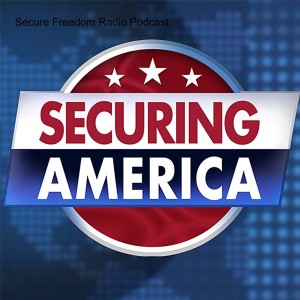

Bruce Klingner, Robert Zarate, Cynthia Farahat, Gordon Chang
What is the status between the United States and their allies in reference to North Korea’s nuclear program and how does China fit into this situation. Bruce Klingner of the Heritage Foundation explains that the older generation sees it as a socialist buffer-zone between them and the West. The younger generation sees it as a trouble maker and wants more dialog between China and South Korea. Bruce then explains the presence of the US in South Korea and in the region and how the defense cuts will hinder the region’s security.
Robert Zarate speaks on the defense budget and how the Department of Defense has spent less than their budget every year for the last five years and non-defense programs have exceeded their budgets during that same timeframe. A deep cut in defense spending will have disastrous effects on our security, not just today or tomorrow but years down the road. In a time of uprisings in the Middle East, aggression in Asia and general hatred for America and democracy overall throughout parts of the world, how can America handcuff itself through these cuts? How can our diplomats push American interests and democracy if they are not protected by their military? These cuts will not only affect our military capabilities, but our diplomatic capabilities as well.
Egyptian Coptic writer and activist, Cynthia Farahat, recently escaped violent religious persecution of the Egyptian domestic security forces. Today she joined Fred Grandy in the Secure Freedom Radio studio and is reporting in English on that persecution, the nature of the forces taking power, and up to the day events on the ground. The U.S. government policy makers and media are not getting the whole story and are especially missing the most important intelligence requirements of the political and human rights state of play. The U.S. government is in fact currently arming and funding the violent persecution of religious minorities in Egypt including moderate Sufi Muslims.
Is the Obama Administration tired of China’s games or are they playing politics and are employing a campaign strategy? Gordon Chang explains the change in U.S. policy towards China. The Trans-Pacific Partnership free trade deal does not include China, the Pentagon’s Air-Sea Battle Concept which is directed to containing China, Taiwan being named a major security partner as well as the recent East-Asia Summit, the U.S. has taken a stance to China’s South China Sea claims are just a few examples of the shift in Obama’s policy towards China. Will China back off from their aggressive endeavors within the region or will this new shift make them more hostile? Post Cold War, the U.S. policy towards China was to work with them and provide them with assistance even when they went against American principals. We rewarded them for being bad, so what incentive does China have to work with us instead of against us?
More Episodes
All Episodes>>You may also like
Creat Yourt Podcast In Minutes
- Full-featured podcast site
- Unlimited storage and bandwidth
- Comprehensive podcast stats
- Distribute to Apple Podcasts, Spotify, and more
- Make money with your podcast



